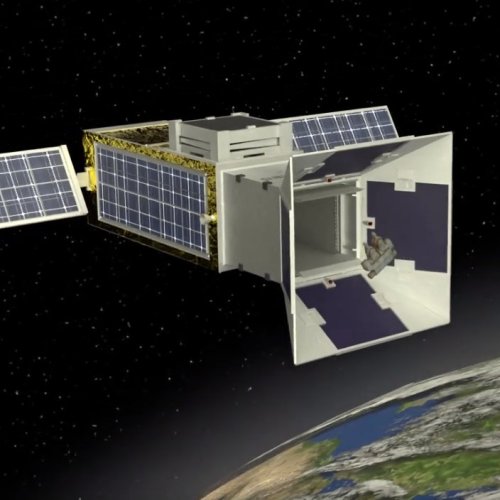Startup proposes capturing space junk with a satellite operating like a whale

Paladin, a new space junk removal startup based in Australia, has now proposed building a satellite that would literally swallow space junk and then send it over the ocean to burn up.
The image to the right shows the satellite as a piece of junk is about to be captured. The advantage it has on all other designs for capturing space junk is its simplicity. No nets, no harpoons, no grappling arms. The debris is captured inside a box inside the satellite, and then that box is released to burn up. This quote from the startup’s founder and CEO, Harrison Box, illustrates well his investment argument:
“The European Space Agency is currently paying 100 million euros to remove just one item of space junk. That’s the value they put on the job,” says Box. “Imagine the value of being able to remove hundreds.”
Paladin is one of 29 startups that have divided up $14 million in development money provided by a program of the Australian government. Thus, it is only at the very beginning of development, without a lot of cash to work with.
The idea however is smart, with great potential.

Paladin, a new space junk removal startup based in Australia, has now proposed building a satellite that would literally swallow space junk and then send it over the ocean to burn up.
The image to the right shows the satellite as a piece of junk is about to be captured. The advantage it has on all other designs for capturing space junk is its simplicity. No nets, no harpoons, no grappling arms. The debris is captured inside a box inside the satellite, and then that box is released to burn up. This quote from the startup’s founder and CEO, Harrison Box, illustrates well his investment argument:
“The European Space Agency is currently paying 100 million euros to remove just one item of space junk. That’s the value they put on the job,” says Box. “Imagine the value of being able to remove hundreds.”
Paladin is one of 29 startups that have divided up $14 million in development money provided by a program of the Australian government. Thus, it is only at the very beginning of development, without a lot of cash to work with.
The idea however is smart, with great potential.
